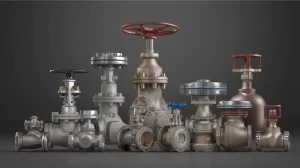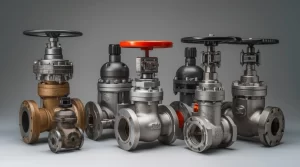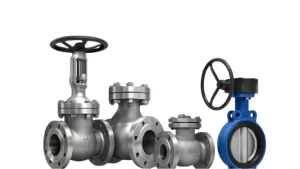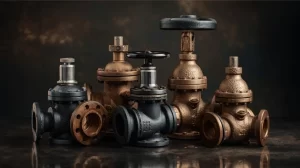Forging is the process of shaping metals and alloys while they are still solid to create forged valves. The metals and alloys are smashed by heat and large industrial instruments, and then dies are used to cut and shape them into the desired valve shapes. Forging may take place at different temperatures depending on the metals.
Businesses may profit greatly from the use of forging in the production of valves. Due to the forged valves’ one-piece design, there is a significant benefit in that there is less waste. To get them the correct size and form, hardly much tinkering is required.
Given their reputation for toughness, these forged valves are excellent in high-pressure and high-temperature systems. The refined grain structure of the metal increases during forging, increasing its overall strength and impact. Additionally, it aids in resisting typical problems, including porosity, shrinkage, and fractures.
Forged Valve Manufacturing Process
If you’re looking for a forged ball valve, you should know that its manufacturing process differs somewhat from that of cast ball valves. The procedure begins with designing and constructing the valve to meet your demands, just as with the cast ones. Different sizes, pressure classifications, alloys, and trim packages are just a few of the possibilities we provide. Our forged severe service ball valves, for instance, come in sizes ranging from ½” to 20″ and ANSI grades from 150# to 4500#.
Our specialists start working as soon as we get the final design. Forging a valve is the process of forming metal components using mechanical forces, often combined with a little heat to soften the steel. To ensure you receive robust, durable, and dependable valves for whatever you’re working on, we forge both the valve bodies and internal components.
Typically, the forging process involves heating up the metal and using a die-forging machine to compress, bend, and shape it into the proper shape for the forged ball valve. The machine provides pressure to ensure that the metal assumes the proper form, and the die functions similarly to a mold in this regard. Larger valves may need the joining of many pieces via welding. In order to get the ideal form, our staff may sometimes additionally need to manufacture the components. Our valve specialists may apply bespoke coatings to the surfaces to suit your unique requirements. After the components are all precisely formed and forged, we assemble the valve, examine it closely, and test it to ensure that it satisfies our high requirements.
Why Choose Forged Valves?
Forged valves may be your best option if you’re working with challenging conditions, such as very high temperatures and pressures. Strong and durable valves are essential when conditions are harsh. Compared to cast valves, forged valves are often stronger. The method of manufacture, particularly in high-performance ball valves, helps reduce issues with shrinkage, porosity, and cracking.
Forged valves are not only more resilient to temperature fluctuations, but they are also stronger. Therefore, forged valves often outperform cast alternatives in terms of robustness, dependability, and maintenance requirements. They resemble the robust superheroes of the valve industry!








